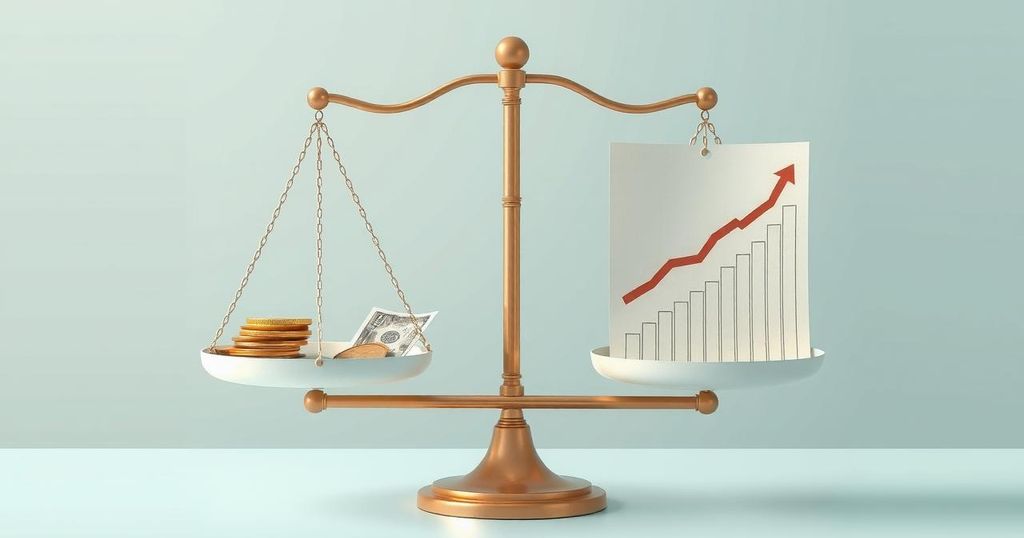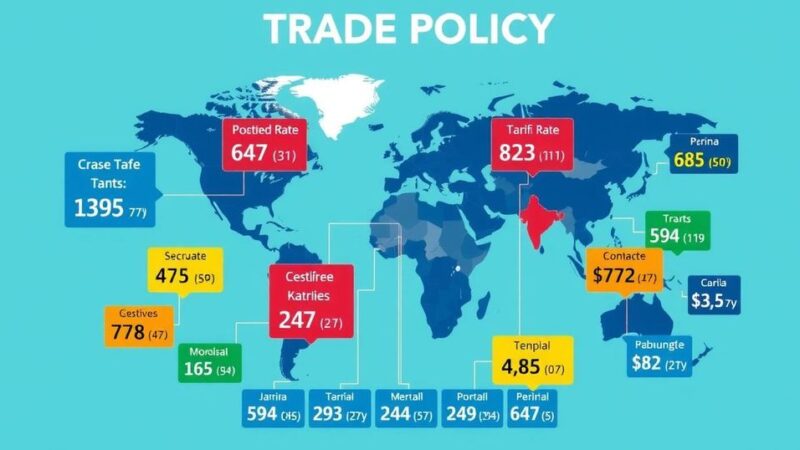South Africa is considering a Value Added Tax (VAT) increase to 16% by 2026/27, raising concerns among citizens facing rising living costs. The increase may significantly impact low-income households and small businesses, already under financial strain from rising prices and electricity costs. Certain essential food items will remain exempt from VAT, and analysts suggest pursuing alternative revenue strategies to avoid exacerbating economic difficulties, particularly among impoverished communities.
South Africa is currently grappling with significant economic circumstances as the government deliberates on an increase in the Value Added Tax (VAT). In his 2025 Budget Speech, Finance Minister Enoch Godongwana revealed plans to raise VAT by 0.5 percentage points in 2025/26 and again in 2026/27, resulting in a new rate of 16% by the end of 2026/27. This potential adjustment raises concerns among citizens already burdened by escalating living costs.
The proposed VAT increase is expected to impact nearly all goods and services, with few zero-rated exceptions. According to research from the Pietermaritzburg Economic Justice and Dignity Group (PMBEJD), families may experience a rise in grocery expenses of approximately R375.16, pushing total grocery costs to R5,477.84. Additionally, prices for essential toiletries and household products may increase, further straining family budgets.
Experts have expressed concerns that the VAT hike will particularly disadvantage low-income households, which allocate a substantial portion of their income towards necessities such as food and electricity. Compounding this issue, anticipated increases in electricity prices by about 12.7% are likely to increase financial pressure on many South African families.
Small businesses are also expected to suffer as operational costs rise due to the VAT increase. Such financial strain poses competitive challenges, potentially leading to job losses and a negative impact on economic growth. Nevertheless, certain staple items will remain exempt from VAT, including brown bread, maize meal, and vegetables; beginning May 1, 2025, the exemption list will expand to include additional items such as edible offal and canned goods.
Economists contend that increasing VAT may not be a viable solution to South Africa’s fiscal challenges and suggest exploring alternative revenue avenues that do not further penalize underprivileged communities. Following a budget announcement fraught with controversy, highlighted by a delayed speech on February 19 due to disagreements over taxation, the future economic landscape remains uncertain.
Currently, South Africa’s tax system is regarded as one of the most burdensome globally, with high personal income taxes, amounting to nearly 25% of the country’s GDP. This financial pressure can deter investment and growth while deepening poverty levels. The prevailing economic turmoil is compounded by escalating unemployment and stagnating growth, contributing to a deteriorating financial outlook.
To address these complex issues, analysts recommend emphasizing job creation and stimulating economic progress to restore public confidence. The government must be responsive to increasing public dissent regarding the VAT increase, as such actions could lead to a considerable reduction in consumer spending, exacerbating the nation’s economic woes.
In this context of uncertainty, South Africans are encouraged to manage their budgets judiciously, taking advantage of VAT-exempt food items while navigating potential financial changes ahead.
The proposed VAT increase in South Africa poses significant challenges, particularly for low-income households already struggling with rising living costs. While certain staple goods will remain exempt from this tax, the overall impact of the increase is expected to exacerbate financial pressures on families, small businesses, and potentially lead to further economic decline. It is essential for the government to consider alternative revenue strategies and prioritize measures that promote job creation and economic stability to mitigate these adverse consequences.
Original Source: evrimagaci.org






